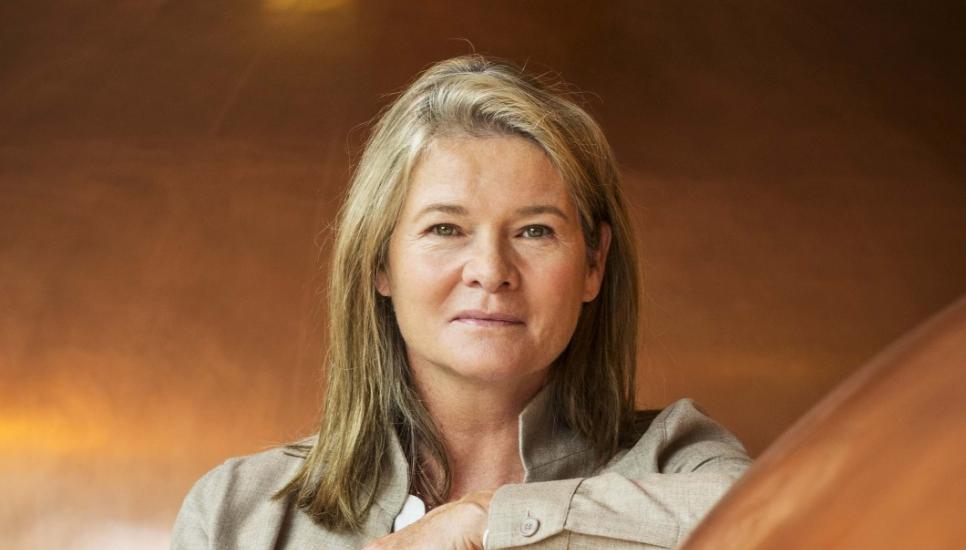FB Roundup: Heineken, Fininvest, Nathan Cummings Foundation

Heineken brews acquisition of South Africa’s Distell Group
Family-owned Heineken, the world’s second-largest brewer, could buy a majority share of a unique $1.8 billion South African wine and spirits company, making the deal its second acquisition in 2021.
The fourth-generation Dutch beer maker confirmed last week it is in talks with Distell Group Holdings over a “potential transaction”. The $23.7 billion brewer added discussions were ongoing and there was no certainty an agreement would be reached.
Heineken was responding to advice issued from Distell to its shareholders. Distell told its shareholders that Heineken had approached the Western Province-based company about the potential acquisition of most of its business. It did not specify which components.
“Shareholders are advised to exercise caution when dealing in their Distell securities until a further announcement is made,” Distell said.
Founded in 2000, Distell is the only South African-owned and operated alcoholic beverages company and Africa’s leading producer and marketer of wines, spirits, ciders and ready-to-drink beverages. Markets outside of South Africa contribute almost a quarter of its revenue.
.jpg)
In April, Heineken reported “strong growth” in Africa, along with the Middle East, eastern Europe and Asia-Pacific, growing 12.1% in its 2021 first-quarter results. The upswing contrasted with “modest growth” in the Americas and “decline” in Europe due to Covid-19 restrictions.
If the Distell deal is completed, it would follow Heineken’s increase of its minority stake in London startup Brixton Brewery to 100% for an undisclosed amount after only four years in February.
Charlene de Carvalho-Heineken (pictured), 66, owns a 23% share of the Amsterdam-headquartered brewing giant with her husband, English financier Michel de Carvalho, 76. The parents of five children maintained their ninth place in The Sunday Times Rich List 2021 from 2020 with their $17 billion fortune, up $2.4 billion on last year.
De Carvalho-Heineken is the great-granddaughter of Gerard Adriaan Heineken, who bought a brewing company in Amsterdam in 1864. The law graduate inherited the Heineken stake upon the death of her empire-building father, Freddy Heineken (pictured), at the age of 78 in 2002.
Heineken employs more than 80,000 staff and operates breweries, malteries, cider plants and other production facilities in more than 70 countries.
 Berlusconi family's Fininvest exits Mediobanca
Berlusconi family's Fininvest exits Mediobanca
Fininvest, the Italian holding company of the Berlusconi family, has exited the Italian investment bank Mediobanca, a cornerstone of its empire, in a shake-up of its portfolio.
Mediobanca announced last week Fininvest had sold its entire shareholding in the bank, which involved 17.7 million shares, equal to 2% of the company’s share capital. Fininvest earned $211 million in its divestment.
The holding company said the transaction was part of a readjustment of its financial investment portfolio. The Rome-based company bought a 1% stake in Mediobanca in 2007, then doubled it in 2008. Its exit leaves the largest shareholder of the bank, at 13.2%, as Leonardo Del Vecchio, 86. Del Vecchio made his $28.4 billion fortune from EssilorLuxottica, the Ray-Ban sunglasses making family business he founded.
Fininvest has invested more than $25.5 billion in the past 15 years, mainly in communications and entertainment interests. The company has been chaired by Marina Berlusconi (pictured), 54, since 2005. The 12-person board of directors includes her brother Pier Silvio Berlusconi, 52.

She has also been chairwoman of Arnoldo Mondadori Editore, the Fininvest majority-owned largest publishing company in Italy, since 2003. She was a member of the board of Mediobanca from 2008-12.
Marina Berlusconi is the eldest daughter of Silvio Berlusconi (pictured), 84, the colourful Italian media tycoon, former prime minister of four governments until 2011, and his first wife Carla Elvira Lucia Dall’Oglio, 80.
Silvio Berlusconi founded Fininvest as a family company in 1975. The firm was integral in building the family fortune, which amounts to $8.2 billion, according to Forbes. Fininvest is the holding company for one of the world’s major communications groups, which includes Mediaset, the largest commercial broadcaster in Italy; Mondadori, the country’s biggest publishing company, and football club AC Monza. Fininvest owned AC Milan for 31 years until Berlusconi sold his stake in the football club to Chinese investor Rossoneri Sport Investment Lux in a $901 million deal in 2017.
Fininvest later welcomed investors to its main listed companies—Mediaset, Mondadori and Mediolanum—and now has more than 133,000 shareholders, from small investors to Italian and global financial and industrial entities.
 Nathan Cummings Foundation calls for racial equality in impact investing
Nathan Cummings Foundation calls for racial equality in impact investing
The first fourth-generation family member to lead the Nathan Cummings Foundation says she wished the New York-based philanthropic institution applied a “racial-equity lens” when it first made its shift to impact investing three years ago.
Jaimie Mayer (pictured), 38, chairwoman, said the foundation was opening up about what it learned from its transition to 100% mission-aligned investing in its new report released this month. Mayer is the great-granddaughter of the late Cummings (pictured), a Canadian-born US businessman, investor, art collector and philanthropist who founded Consolidated Foods, later renamed Sara Lee after one of its products.
The 72-year-old private foundation, with a $500 million endowment, made the decision in 2018 to activate all its resources, not just its grants, in service of its social mission. The journey was more difficult than its trustees and executives had expected and also more rewarding, Mayer said.
The foundation said it began aligning its investments with its values by analysing what was in the portfolio and then shifting its assets from companies “doing harm” into companies that actively seek to benefit broad stakeholders and those that meet the even-higher bar of helping to solve systemic challenges. However, “we wish we had started by applying a racial-equity lens,” Mayer said.
“We found out the hard way that racial and economic justice are not yet baked into impact investment the way that environmental and governance factors are.”
This week sees the first anniversary of the murder of African-American George Floyd by a white police officer, which brought racism and racial equality to the forefront around the world.
To address the impact gap, the foundation commissioned research, included in its report, on how to shift capital to funds and communities often bypassed by Wall Street. The foundation’s research partner, Frontline Solutions, surveyed 115 outside chief investment officers (OCIOs), the firms that typically manage the assets of small and mid-sized foundations.
Only a small subset of OCIOs have a clear mandate to examine the diversity of the fund managers they research, the foundation reported. Even among impact investors, too few OCIOs factor racial, economic, or environmental justice into their investing approach.
The foundation also found that diverse investment professionals face significant disadvantages in the marketplace, often because they do not have as lengthy a track record as white peers.






